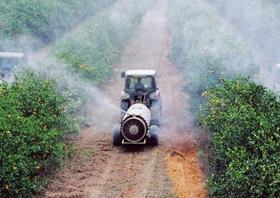
The European Union’s pesticide residue reduction proposals could lead to a 50 per fall in the yields of some crops and mean significant price rises for consumers, it was claimed this week.
According to the UK’s Fresh Produce Consortium (FPC), the proposals, which are currently before the European Parliament, are “ill-thought out” and could result in uncertain supplies of fresh produce.
In a statement, the lobbying group said it was concerned that the Parliament may introduce “more stringent revisions” to EU proposals to introduce greater limits on pesticide residue levels, “without any evidence of benefit to the consumer in terms of safety”.
The FPC argued the proposals could adversely affect horticulture throughout Europe, as well as the international trade of fresh fruit and vegetables and subsequent availability of food.
The group claimed that UK studies have found that the EU’s proposals could lead to the removal of up to 15 per cent of active substances, some of which are critical to UK horticulture.
The Parliament’s proposed revisions in the long term, it claimed, could lead to the loss of 85 per cent of crop protection products, with yields dropping by 50 per cent for key crops like potatoes and brassicas. The price of staple foods would need to rise by more than 100 per cent under the more severe restrictions if farm margins are to be protected, the FPC argued.
“With increasing levels of obesity across Europe, particularly among young people, we should be encouraging more people to eat fresh fruit and vegetables. These proposals will make produce less affordable,” argued FPC chief executive Nigel Jenney.



